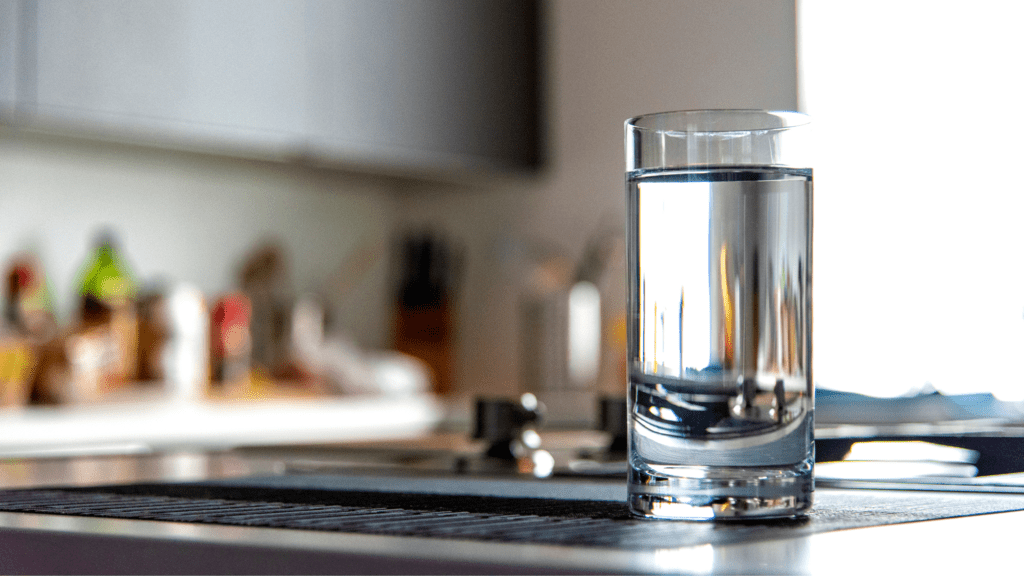Part 2 of 2 in the series, From Source to Tap: The Journey of Water in Your New Home
Water is a vital resource that sustains all aspects of a home – drinking, cooking, bathing, and maintaining the cleanliness of the household. Yet, how often do we turn on the tap without considering what it takes for that water to be clean and safe? Understanding your home’s water system is not only a matter of ensuring the health and well-being of your family, but it’s also about appreciating and maintaining the complex infrastructure that makes modern living possible.
If you’ve never owned a home, whole-home water treatment may seem like a hidden system that operates behind the scenes. At its core, the system is designed to accomplish two main tasks:
- Deliver water to the home
- Ensure that water is of acceptable quality for drinking and other uses

How Will My Water Treatment System Work?
A water treatment system in your home is focused on task #2 to ensure that the water you use every day is clean and safe. Below, we’ll explore the journey water takes through this system and the processes involved in transforming it from raw supply to a quality resource fit for drinking and household use.
A water treatment system typically comprises several key components.
- The main water line brings water into the home, where it is then routed to various fixtures through a series of pipes.
- When the water enters your home it may pass through filters, reverse osmosis systems, or other treatment devices to remove particulates, chemicals, pathogens, and other contaminants.
- In homes with hard water, a water softener might be installed to exchange minerals like calcium and magnesium, which can cause scaling, with sodium ions.
To truly appreciate what your water system does, it’s important to refer to homeowner guides about clean and safe water. The best water filter and treatment system guide describes each component’s role, from the point where water enters your home to when it flows out of your faucet. You’ll be empowered to make informed decisions about ongoing water treatment improvements and maintenance as well as understand how to address any urgent water issues.
The goal for any well-maintained water system is to ensure the longevity of your home’s plumbing and the ongoing health and comfort of your family.
Learn More About Water Issues >>
Should I Replace My Water Filtration System After Moving In?
Moving into a new home comes with a long checklist of essentials to review for ensuring a comfortable and safe living environment for your family and guests. Among these, the water filtration system is one of the most important to ensure is working most effectively since it directly impacts the quality of the water you drink, cook with, and bathe in.
You also might wonder about the necessity of replacing the existing water filtration system. To make an informed decision, there are key considerations to take into account. This list can also help guide a conversation with a local water expert like Carroll Water. Water technicians can provide customized recommendations based on the specific conditions of your home and water quality.
- Condition of the Current System – If the existing system is older it may begin to malfunction, or require maintenance within the year after moving into your home.
- Water Quality Test Results – Have the water tested to determine if the current system is effectively removing contaminants and particulates. A free in-home water test can quickly provide results that will inform your decision to modify, maintain, or replace the water system in your home.
- Compatibility with Your Needs – The existing system may not be suitable for your specific water usage or quality needs. If your water has different contaminants or if you require a higher-capacity system, replacement is a good choice.
- Up-to-date Technology – Water treatment technology advances over time. If the system is outdated, a newer model might provide better filtration and efficiency. The latest systems also include wifi-enabled technology to monitor water quality and flow rates. They can also help to avoid water leakages or other critical issues.
What Should I Consider Before Moving Into My Home?
As you prepare for the big move into your new home, one critical element that warrants your attention is the water treatment system—a vital component that ensures your water is clean, safe, and palatable. Navigating the intricacies of such systems can be complex, but with the guidance of an expert, you can make informed decisions with confidence.
Carroll Water’s team of professional water technicians offers local expertise in Maryland, Northern Virginia, and Southern Pennsylvania. Having expert advice is indispensable when considering key factors about your home’s water treatment system before moving into your new residence.
Here’s a concise checklist to help you evaluate your needs:
- Existing Water Treatment System Evaluation – Assess the current state of the home’s water treatment system to ensure it’s functioning correctly and efficiently.
- Water Quality Test – As part of your home inspection, have a comprehensive water quality test performed to identify any contaminants present and determine if the current system is adequate.
- System Capacity – Check if the system’s capacity aligns with your expected water usage, considering the number of inhabitants and typical daily water consumption.
- Maintenance Records – Request maintenance records from current owners for the existing system to gauge its upkeep history and anticipate any near-future servicing needs.
- Compatibility with Health Needs – Ensure the system meets the specific health needs of your household, such as the removal of certain minerals or contaminants.
- Local Water Conditions – Research the typical water conditions in your new area, as different regions may have unique issues, like iron in the water or hard water, that require specialized treatment.
- New Water Issues – There may also be new water issues or public water contaminations that have occurred since the current system was installed that could require modifications to address them.
- Regulatory Compliance – Verify that the system complies with local regulations and standards for water treatment.
- Upgrade Potential – Consider whether the existing system can be easily upgraded or if it would require a complete overhaul to improve its functionality.
Dedicating the effort to fully comprehend the complexities of your home’s water treatment system can be the key to ensuring a future of pure, safe, and enjoyable water consumption. Contact us if you have any questions during your journey of evaluating the water treatment system in your new home.
Read Part 1 in the series, From Source to Tap: The Journey of Water in Your New Home, What to Know About Well Water in Your New Home >>


